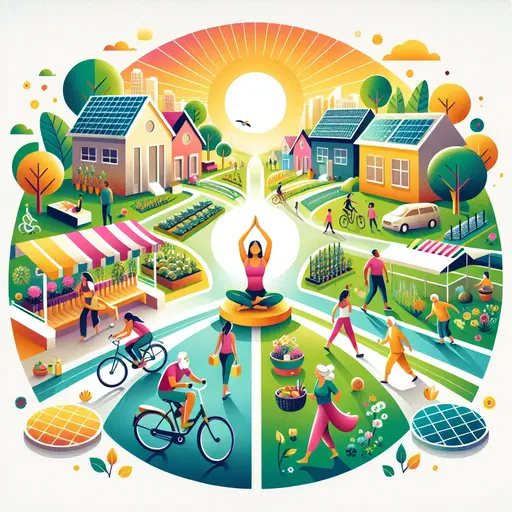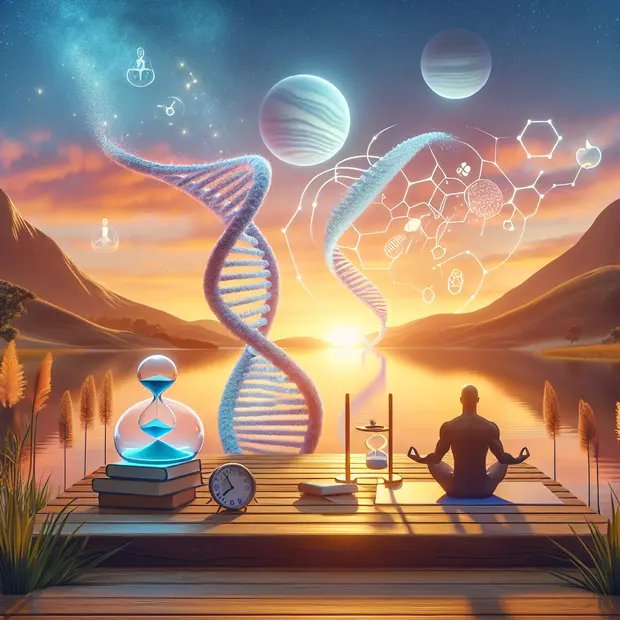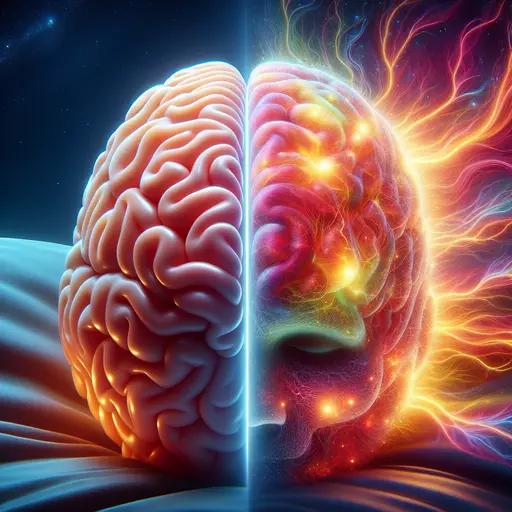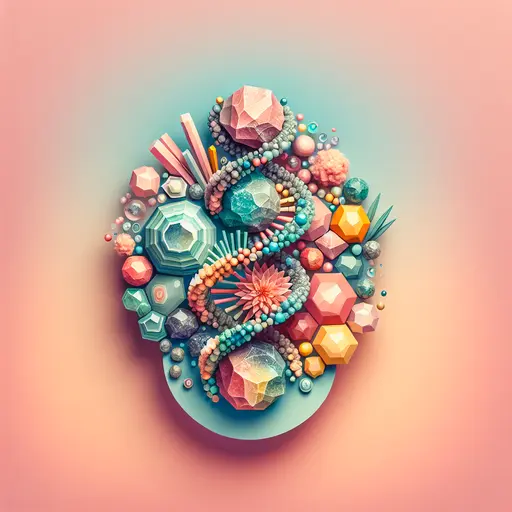The Importance of Health and Well-being in Sustainable Development Goals
Explore the vital role of health and well-being in achieving Sustainable Development Goals (SDGs). Understand the interconnection and the power of personal choices in creating a sustainable future.

From the bustling city streets to the quiet corners of our homes, health and well-being have become integral parts of our daily conversations. Whether it's the food we eat, the exercise we do, or the stress management techniques we adopt, our health is our wealth. But have you ever stopped to consider the broader implications of health and well-being in the context of sustainable development? In this article, we will delve into the importance of health and well-being in achieving sustainable development goals (SDGs).
The Interconnection Between Health, Well-being, and Sustainable Development
Health and well-being are not standalone concepts isolated from other aspects of our existence. They are deeply intertwined with several other development factors - economic, social, and environmental. This intricate relationship is akin to a domino effect; when we strive for better health and well-being, we inevitably contribute towards the achievement of multiple Sustainable Development Goals (SDGs).
We need to understand that our health does not exist in a vacuum. It is interconnected with the society we live in, the economy we function within, and the environment that surrounds us. Neglecting any of these aspects can have a direct or indirect impact on our health and well-being. This is why a comprehensive approach to sustainable development is a must. When we work towards creating financial stability, social equality, and a cleaner environment, we indirectly enhance our health and well-being too.
"Health is a human right. It's accessibility and affordability need to be at the forefront of our sustainable development strategies." - Dr. Maria Neira, WHO Director of Public Health and Environment
These wise words by Dr. Maria Neira highlight the importance of health in our sustainable development strategies. It emphasizes that health should not be viewed as a mere outcome of development, but as a fundamental right and a crucial aspect of it.
Remember, a healthier population contributes more actively towards the economic progress of a nation. They are more productive, leading to economic stability. In turn, economic stability can help in promoting social equality. Social equality further ensures that health facilities and healthcare are not just accessible, but also affordable to all sections of the society. This way, we ensure that our approach to sustainable development is truly holistic and beneficial for all.
The Vital Impact of Health and Well-being on Sustainable Development Goals
The United Nations' Sustainable Development Goals (SDGs) represent a global call to action, a collective endeavor to eradicate poverty, safeguard our planet, and ensure that all people experience peace and prosperity by the year 2033. These 17 far-reaching goals are a roadmap for worldwide progress, with each one addressing a significant challenge that our global community faces. However, one goal, in particular, stands out due to its intrinsic link with almost all other goals - Goal 3, which focuses on the promotion of good health and well-being for all individuals, regardless of their age.
The third Sustainable Development Goal is a comprehensive plan, striving to ensure healthy lives and promote well-being for all at all ages. Its scope is expansive, encompassing various critical health issues affecting people across the globe.
- Goal 3: Good Health and Well-being - This goal is not just about the absence of illness or disease; it aims to provide a holistic approach to health. It aims to significantly reduce the global maternal mortality ratio, a pressing issue that disproportionately affects women in developing countries. Additionally, it seeks to end preventable deaths of newborns and children under 5 years of age, a critical intervention that could save millions of lives. The goal also includes an ambitious plan to combat epidemics of AIDS, tuberculosis, malaria, and other communicable diseases, which continue to cause widespread devastation. Moreover, it advocates for the promotion of mental health and well-being, a frequently overlooked but essential aspect of overall health.
However, the importance of health and well-being is not limited to Goal 3. It's a vital component of many other SDGs, underscoring the interconnected nature of these global goals.
For example, eradicating poverty (Goal 1) directly contributes to improved health outcomes, as poverty often equates to inadequate access to healthcare services, poor nutrition, and potentially hazardous living conditions. Achieving zero hunger (Goal 2) is also intrinsically linked with health, as malnutrition and hunger contribute to stunted growth in children and increased susceptibility to diseases. Quality education (Goal 4), too, has a profound impact on health, as it equips people with knowledge about hygiene, nutrition, and disease prevention. In the same vein, providing clean water and sanitation (Goal 6) prevents diseases caused by poor hygiene and contaminated water. Lastly, promoting decent work conditions (Goal 8) is crucial for mental and physical health, as stressful, unsafe, or exploitative work environments can have severe health implications.
Thus, the SDGs, while diverse, are interconnected, and health is a thread that weaves them together. It highlights the importance of a holistic, integrated approach to sustainable development—one that recognizes the key role of health in driving progress and prosperity.
The Power of Personal Choices
As individuals, we have a remarkable power to contribute to global goals through each and every one of our personal choices. It is easy for us to underestimate the impact of our decisions, but once we begin to truly understand it, we can harness that power for the betterment of our world. Imagine the magnitude of the change we could bring about if we all made conscious, responsible decisions every day.
Take my own experience as an example. A few years ago, I decided to switch to a plant-based diet. The initial motivation for this lifestyle change was purely for health reasons, as I was seeking a cleaner, healthier way to nourish my body. However, as time passed and I became more enlightened about the ripple effects of my personal choices, I realized the broader implications of my diet. It wasn't just about personal wellness anymore.
Surprisingly, my decision to opt for plant-based foods was not just contributing to my own physical health, but also to Goal 2 (Zero Hunger) and Goal 13 (Climate Action) of the Sustainable Development Goals. How, you may ask? Well, a plant-based diet tends to require fewer resources to produce, thereby reducing strain on our planet's resources and potentially contributing to more equitable food distribution. Furthermore, cutting down on meat consumption can significantly reduce carbon emissions, aiding in the fight against climate change.
Such is the power of personal choices - they can create ripples of positive change that extend far beyond our own lives. And this is not just about the food we eat. It applies to all the choices we make every day, from the clothes we wear to the mode of transportation we choose. Every decision is an opportunity to make a positive impact.
Ultimately, it all boils down to making mindful decisions. Decisions that benefit not just us, but the world around us. Embracing conscious choices doesn't mean making massive sacrifices; rather, it's about understanding the impact of our actions and making small, sustainable changes. It's about realizing that our choices matter, and that we all have the power to shape a better future. So, let's use that power wisely, and let's make every choice count!
Conclusion
In conclusion, health and well-being play a pivotal role in the achievement of sustainable development goals. By prioritizing our health and well-being, we can contribute to a ripple effect that benefits our societies, economies, and environments. It's time to recognize the interconnections and harness the power of our personal choices for a healthier, more sustainable world.
🌿
Category: Health & Wellness
Join the community
Related Articles

The Impact of Sleep Habits on Dementia Risk
Has it ever crossed your mind that the state of your sleep c...

The Science Behind Becoming a Morning Person
Are you a night owl who craves the productivity and peace of...

Autoimmune Disorders: When the Immune System Attacks Itself
Imagine the horror of your body's defenses turning against y...
Latest Articles

The Importance of a Consistent Skincare Routine
As we journey through life, our skin goes through a myriad o...

What Sleep Deprivation Does to the Brain
Perhaps you've had those days where you've survived on just ...

The Role of Minerals in Rock Formation
Welcome to another enlightening article on HeavenRelax.com, ...
Comments
No comments yet. Be the first to comment!